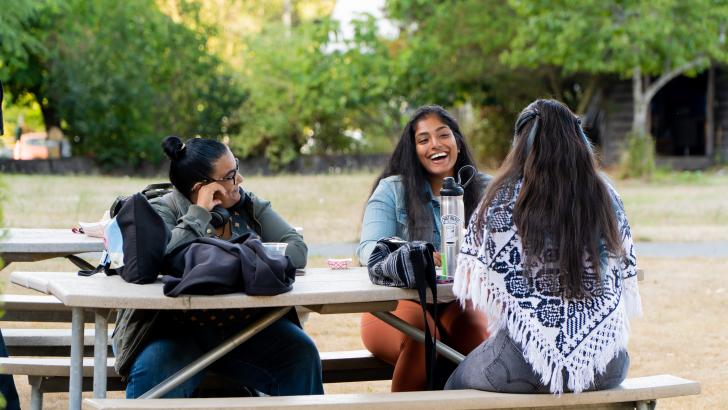Consumer Information
Information regarding public safety at Bastyr is provided in the Campus Safety Report. The Safety Report includes crime statistics for the previous three years concerning certain crimes reported to have occurred on campus; in certain off-campus buildings or property owned or controlled by BU; and on public property within, or immediately adjacent to and accessible from, the campus.
This report also includes the following information:
- Police and public safety resources;
- Reporting crimes;
- Coordination between law enforcement agencies;
- Fire and medical emergencies;
- Crime prevention;
- Annual fire report,
- Campus sexual violence prevention programs and resources;
- "Timely warning" and emergency notification policy statement;
- Missing student notification policy;
- Alcohol and Illicit Drug Free Workplace policy
- Title IX
- Nondiscrimination and Civil Rights policies
- Harassment and Sexual Misconduct (Dating Violence, Domestic Violence and Stalking)
Bastyr University conforms to the Family Educational Rights and Privacy Act of 1974 (FERPA), commonly known as the Buckley Amendment, which requires that Bastyr adopt guidelines concerning the right of a student to inspect her/his educational records and guidelines concerning the release of personally identifiable information to third parties. The Act further provides that such a student has the right to a hearing in order to provide for the correction or deletion of inaccurate, misleading or otherwise inappropriate data and provides that students be informed annually of the types of educational records maintained by the University that are directly related to students. Consistent with that act, the University's policy on Compliance with the Family Educational Rights and Privacy Act (FERPA) is established to ensure that information contained in such records is treated in a responsible manner with due regard to the personal nature of the information. Prospective and incoming students are not covered under FERPA.
Compliance with the Family Educational Rights and Privacy Act (FERPA) (.pdf)
We know finding the financial information and resources to afford your education can be daunting. Our financial aid team will work closely with you to determine which aid you qualify for and answer any questions that you have.
There are several ways you can request an official or unofficial transcript. Click here to discover which option works best for you.
Professional Licensure Determination
NPLEX (Naturopathic Physicians' Licensing Examination) Pass Rates*
| NPLEX Part 1 Bastyr Students |
NPLEX Part 1 National Average |
NPLEX Part 2 Bastyr Students |
NPLEX Part 2 National Average |
||
| August 2022 | 61.90% | 63.90% | 89.70% | 83.10% | |
| August 2023 | 54.90% | 62.00% | 81.60% | 75.80% | |
| August 2024 | 73.30% | 71.90% | 86.30% | 81.90% |
*Pass rates include first-time test takers
National Board Certification
National Certification Commission for Acupuncture and Oriental Medicine (NCCAOM) Board examination pass rates - 3-year rolling average pass rates
| Three Year Rolling Average of first time takers (%) | |||||||||
| Foundations of Oriental Medicine | Acupuncture with Point Location | Biomedicine | Chinese Herbology | ||||||
| Year | Bastyr | National | Bastyr | National | Bastyr | National | Bastyr | National | |
| 2020 (18-20) | 90.63 | 84.40 | 81.90 | 75.97 | 83.97 | 74.53 | 77.13 | 71.20 | |
| 2021 | 97.10 | 90.23 | 82.40 | 73.53 | 87.30 | 73.77 | 74.07 | 68.23 | |
| 2022 | 100.00 | 94.93 | 81.97 | 72.67 | 86.77 | 71.50 | 77.50 | 67.13 | |
| 2023 | 100.00 | 94.22 | 70.07 | 71.61 | 83.97 | 68.90 | 69.17 | 68.00 | |
| 2024 | 94.43 | 93.32 | 74.50 | 73.24 | 82.50 | 67.88 | 68.07 | 66.89 | |
Bastyr University is the world's leading academic center for natural health arts and sciences. The first regionally accredited school of its kind was founded in 1978 and now spans two campuses, offering over 15 programs. Bastyr combines an integrative curriculum with clinical training and research to educate future leaders in a number of natural health professions.
Bastyr graduates loan default rates
| FY21 | FY20 | FY19 | FY18 | FY17 | FY16 | FY15 | FY14 | FY13 | |
| National Default Rate | 0.00% | 0.00% | 2.30% | 7.30% | 9.70% | 10.10% | 10.80% | 11.50% | 11.30% |
| Bastyr Default Rate | 0.00% | 0.00% | 0.30% | 1.60% | 1.40% | 2.00% | 1.80% | 0.07% | 1.00% |
| # Bastyr Students in Default | 0 | 0 | 1 | 5 | 5 | 6 | 5 | 2 | 3 |
| # Bastyr Students in Repayment | 275 | 320 | 286 | 305 | 341 | 288 | 267 | 270 | 287 |
Please view the document here
Scholarships
Browse scholarship information for both undergraduate and graduate students.
Federal School Code
FAFSA for both Kenmore and San Diego is 016059
Office Hours
Monday - Friday: 8 a.m. to 5 p.m
Appointments & Walk-ins
Check in at Student Services Reception, Room 249



